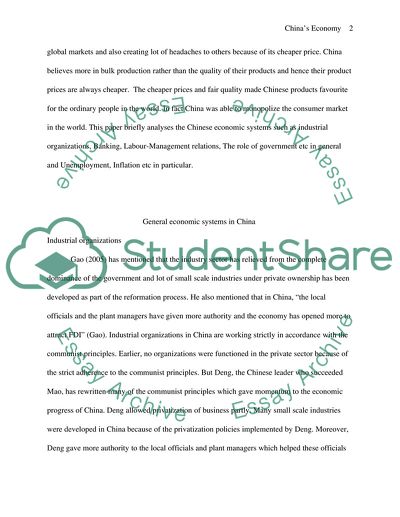Cite this document
(Economic Systems in China Term Paper Example | Topics and Well Written Essays - 3000 words, n.d.)
Economic Systems in China Term Paper Example | Topics and Well Written Essays - 3000 words. Retrieved from https://studentshare.org/macro-microeconomics/1746335-economic
Economic Systems in China Term Paper Example | Topics and Well Written Essays - 3000 words. Retrieved from https://studentshare.org/macro-microeconomics/1746335-economic
(Economic Systems in China Term Paper Example | Topics and Well Written Essays - 3000 Words)
Economic Systems in China Term Paper Example | Topics and Well Written Essays - 3000 Words. https://studentshare.org/macro-microeconomics/1746335-economic.
Economic Systems in China Term Paper Example | Topics and Well Written Essays - 3000 Words. https://studentshare.org/macro-microeconomics/1746335-economic.
“Economic Systems in China Term Paper Example | Topics and Well Written Essays - 3000 Words”, n.d. https://studentshare.org/macro-microeconomics/1746335-economic.


